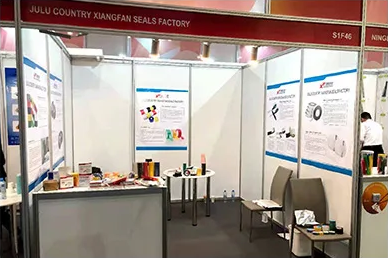Understanding High Tension Insulation Tape Applications, Benefits, and Types
High tension insulation tape has emerged as an essential tool in electrical engineering and maintenance, primarily used to insulate and protect electrical wires and components. With its robust physical properties and versatility, this type of tape plays a crucial role in ensuring safety and reliability in various applications. In this article, we will delve into the characteristics, applications, benefits, and different types of high tension insulation tape available in the market.
Characteristics of High Tension Insulation Tape
High tension insulation tape is typically made from a combination of polymers, such as PVC, rubber, or silicone, that offer excellent electrical insulation properties, heat resistance, and mechanical strength. Its unique composition allows it to withstand high voltage, making it suitable for use in both industrial and commercial settings.
One of the key characteristics of high tension insulation tape is its dielectric strength, which is the ability of a material to withstand electrical breakdown. This attribute is measured in volts per mil, and high tension insulation tape generally has a dielectric strength that can exceed 600 volts per mil, ensuring that it can effectively insulate electrical connections and prevent short circuits.
Moreover, high tension insulation tape is often weather-resistant and can endure extreme temperatures, making it a reliable choice for outdoor applications or situations where exposure to varying environmental conditions is a factor. Additionally, many high tension insulation tapes are designed to be UV-resistant, which further prolongs their lifespan when used in outdoor settings.
Applications of High Tension Insulation Tape
High tension insulation tape is commonly utilized in various applications within the electrical industry. One of its primary uses is in the insulation of high-voltage wiring, ensuring that electrical connections are secured and protected from environmental factors. In addition to wiring, this tape is essential for insulating transformers, capacitors, and motors, where it plays a vital role in maintaining electrical integrity.
Another significant application of high tension insulation tape is in the automotive sector. It is used to wrap and insulate wiring harnesses, protecting the wires from abrasion, moisture, and chemicals. This not only enhances the safety and reliability of vehicles but also helps in reducing electrical failures that could lead to serious malfunctions.
Furthermore, high tension insulation tape is extensively used in electronic devices and appliances. It provides essential insulation for circuit boards and components, preventing electrical leaks that could pose risks to users and the device itself. This insulation tape is also beneficial in securing coils and other components in place, enhancing the overall durability of the device.
high tension insulation tape

Benefits of High Tension Insulation Tape
The benefits of using high tension insulation tape are manifold. Firstly, it provides reliable electrical insulation, ensuring safety in electrical applications. By effectively preventing short circuits and electrical shocks, it helps to protect both users and equipment.
Secondly, high tension insulation tape is easy to apply. Its flexible nature allows it to conform to various shapes and sizes, making it simple to use in tight or awkward spaces. This ease of application means that maintenance and repairs can be performed efficiently, reducing downtime and labor costs.
Additionally, high tension insulation tape is often resistant to chemicals, moisture, and UV light, which enhances its longevity and effectiveness in various environments. This resistance means less frequent replacements, ultimately saving time and resources.
Types of High Tension Insulation Tape
There are several types of high tension insulation tapes available, each designed for specific applications. For instance, PVC insulation tape is commonly used because of its excellent insulating properties and flexibility, making it suitable for most general-purpose applications. Additionally, rubber insulation tape is often preferred for high-voltage applications due to its superior adherence and waterproof qualities.
Silicone tape is another type that offers high-temperature resistance, making it ideal for applications in extreme conditions. Furthermore, some high tension insulation tapes are available in self-amalgamating varieties, which fuse to themselves when wrapped, providing a seamless insulation solution.
Conclusion
In conclusion, high tension insulation tape is a vital component in ensuring safety and reliability in electrical applications across various industries. With its excellent insulating properties, resistance to environmental factors, and ease of application, it is no wonder that this tape is favored by professionals and DIY enthusiasts alike. Understanding the characteristics, applications, benefits, and types of high tension insulation tape can help in selecting the right product for specific needs, ultimately enhancing performance and safety in electrical systems.
-
XIANGFAN Rubber Tape-Ultimate Solutions for All Your Insulation NeedsNewsJun.24,2025
-
XIANGFAN Rubber Tape-Protection for Industrial and Residential ApplicationsNewsJun.24,2025
-
XIANGFAN Rubber Tape: Superior Safety and Sealing for Demanding EnvironmentsNewsJun.24,2025
-
XIANGFAN Rubber Tape: Reliable Solutions for Every Electrical ChallengeNewsJun.24,2025
-
XIANGFAN Electrical & Industrial Tape: Powering Reliability Across IndustriesNewsJun.24,2025
-
XIANGFAN Electrical & Industrial Tape: Excellence in Every ApplicationNewsJun.24,2025
